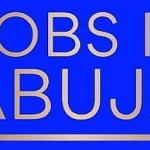Top 11 Common Resume Mistakes You Have Made
If you’ve been sending out loads of resumes / CVs and not hearing anything back, it may be time to give your CV a much-needed professional re-vamp.
Creating a strong resume is essential for a successful job search because your resume is the first thing hiring managers see when you apply for a job, and one of the fastest ways to lose the interest of an employer is by submitting an ineffective, poorly-written, or unprofessional resume, which is why professional help can be invaluable.
Learning about some common resume mistakes to avoid can help you create a compelling resume to attract the attention of potential employers.
Below are 11 common resume mistakes below and why a professional assistance is very important.
- Writing A Resume Objective
A resume objective is a brief statement about what you’re hoping to achieve in your career. Instead of including a resume objective, write a professional summary at the top of your resume. A professional summary describes your unique qualifications to show employers how you can benefit their organization as a new employee. If you have limited work experience, you can include your career objectives in your professional summary, but explain how those goals relate to the new job and the company to which you’re applying.
- Non ATS-friendly Resume
Have you been applying to dozens of jobs but haven’t heard back from any of them? It’s possible that your application keeps being rejected by ATS software. Many large companies rely on applicant tracking system (ATS) software to automatically weed out applications that don’t match the criteria.
If your resume doesn’t contain the relevant keywords and experience the ATS software is looking for, your application could be rejected before it’s even seen by a hiring manager.
Recommended: Why Tailor Job Descriptions to Roles and Levels
To ensure that your resume gets past the ATS and into the hands of a hiring manager, it must be ATS friendly and professional writers understand how to optimize resumes for ATS and human readers.
- Describing Unrelated Work Experience
It is necessary to list work experience that relates to the new position you are applying for when writing your resume. Providing information about your relevant experience shows employers you have the qualifications to perform relevant tasks well. Instead of presenting prospective employers with a comprehensive list of the responsibilities you had at your last job, pick out a few particularly impressive accomplishments for your resume.
If you’re transitioning to a new industry or position, focus on listing skills or accomplishments that highlight your transferrable skills, rather than the job responsibilities you’ve had in other roles. For instance, if you’re applying to a customer service role but you have experience as a cashier, use your resume to explain how you interacted with customers in that position.
Employers want to know if you’re good at what you do. Convince them by giving specific examples of times when you excelled in the workplace, and remember to back up some of your achievements with hard numbers.
- Industry Specificity
Different industries have different needs and varying expectations for resumes, and a well-written resume shows recruiters how you can help meet those needs. Hiring managers most times, know that you’re sending out the same generic resume with every application; this is such a missed opportunity to demonstrate that you have the specific skills and experience they’re looking for. A professional resume writer can tailor your resume to meet the standards of your target industry, whether it’s healthcare, technology, finance, or any other field, irrespective of the industry you’re coming from.
- Grammar and Spelling Errors
A simple typo in your resume can make the difference between you getting the job or someone else, especially, for competitive positions with many highly qualified applicants. If your resume contains grammar and spelling errors, it might lead employers to think that you’re careless or not serious about the job, and professional resume writers can ensure that your resume is free from errors.
- Using Unprofessional Fonts
It can be really tempting to use unique-looking fonts on your resume to set yourself apart from other applicants. However, many non-traditional fonts can make your resume look unprofessional. Instead of using a creative font, stick with something professional and easy to read fonts such as Times New Romans and Calibri.
- Providing Roles Details
Many people struggle to effectively express their qualifications and achievements. For each job on your resume, it is necessary to include enough details to explain how you were successful in the role. You can provide up to five bullet points about your responsibilities and achievements in your current or most recent position. For all other jobs on your resume, write three bullet points. When writing about your work experience, use action verbs to start each bullet point, followed by the impact or result of each action. This level of detail demonstrates your competency and professionalism.
- Using Outdated Contact Information
It’s important to ensure the contact information on your resume is up-to-date so employers can contact you. Ensure to provide your current phone number and an email you check often. Also provide your recent address incase you recently moved. It is also necessary to provide the correct contacts of your referrers. Providing the correct information on your resume ensures a potential employer can contact you to schedule an interview or ask questions about your application.
- Attaching a Photo
As surprising as this may sound to some people, resist the temptation of including a photo of yourself on your resume. Photos or graphics may affect how ATS software scans your resume. If you work in an industry where resume photos are common, such as acting, you can include your photo in those cases. You can also include your photo on professional networking sites or a professional website, if you have one.
Top 10 Strategies To Differentiate Your Hotel From Competitors
- Unprofessional Hobbies
One of the mistakes people make in writing their resume is listing hobbies that are unrelated to the new position they are applying for. You have limited space on your resume to describe your qualifications and attract employers’ attention, therefore, if you have hobbies that apply to the role, include them in the appropriate section of your resume. For example, if you’re applying for a teaching position and you enjoy tutoring young children on the weekends, include this information in a section about your volunteer work.
- Unprofessional Email Address
In your resume header, provide a professional email address, such as one with your first and last name or a variation of it. It may be helpful to create a new email you can use solely for correspondence about your job applications. When you use a professional email address, it helps your resume appear polished and formal.



